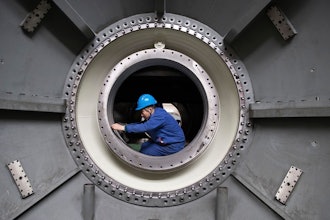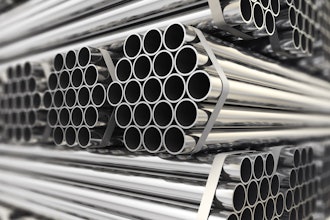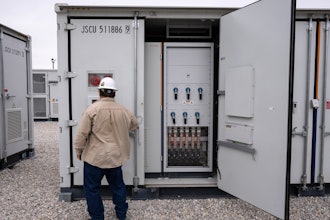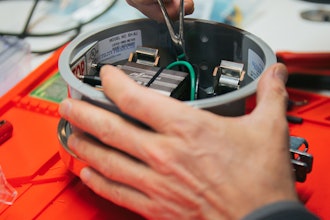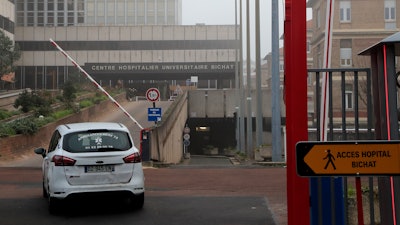
PARIS (AP) — France and a major automaker said Saturday that they are moving to get citizens out of a locked-down Chinese city where a deadly outbreak of a new virus originated and has spread worldwide.
French automaker PSA Group says it will evacuate its employees and their families from Wuhan in central China, quarantine them in another major Chinese city and then bring them back to France.
The Foreign Ministry said French officials were studying “eventual options" for all its nationals to leave if they wish.
It comes a day after France announced that three cases of the new virus are being treated in two French hospitals — the first confirmed in Europe. All the patients are Chinese who had recently returned from China and are doing well, officials said.
A leading infectious disease specialist treating two of the patients said the illness appears less serious than comparable outbreaks in the past, like SARS, and that the chance of a European epidemic appears weak now.
The respiratory virus has spread to a handful of other countries from Wuhan, which is under strict rules to isolate the city of 11 million. The virus has sickened more than 1,200 people and killed at least 41. The vast majority of the infections and all the deaths have been in mainland China.
The virus comes from a large family of what are known as coronaviruses and causes cold- and flu-like symptoms. It can worsen to pneumonia, which can be fatal.
PSA Group did not say how many employees would be part of an evacuation. In a series of tweets, the automaker said transportation, housing and other organizational considerations are being worked out. PSA, which sells its Peugeot and Citroen cars in China, has a joint venture with Dongfeng Motor Corp. in Wuhan.
PSA said it was working closely with Chinese authorities and the French Consulate. The French Foreign Ministry's statement made no mention of PSA's plans.
The automaker did not say how long the quarantine period would last. However, French medical experts have said the incubation period for the virus appears to be 14 days.
PSA also said it is working with Chinese partner DFM and authorities to take care of Chinese employees. It didn't elaborate.
French authorities cautioned against panic at home but were concerned about its citizens in Wuhan and those arriving in France, which has direct flights to China.
Starting Sunday, medical teams will be at France's airports, notably Paris' Charles de Gaulle, to help passengers arriving from Chinese cities with questions or medical needs, French health chief Jerome Salomon said.
Dr. Yazdan Yazdanpaneh said the two patients at Paris’ Bichat-Claude Bernard Hospital are a couple from Wuhan.
The 31-year-old man and 30-year-old woman arrived in France on Jan. 18 without symptoms, but developed them soon afterward, the doctor said. They were taken Friday to Bichat and tested positive for the virus, Yazdanpaneh said.
The two are staying in separate, specially equipped rooms where air enters but cannot escape to guard against transmission. They are doing well, but Yazdanpaneh could not speculate when they might be released. Ways in which the virus can be transmitted remain unclear.
Yazdanpaneh, a leading French expert who heads Bichat’s infectious diseases unit, said that cases imported from China were “not a surprise” and that France had prepared, including by developing a test that provides rapid results for suspected cases.
On the other hand, he said, the chance of “an epidemic in France or in Europe is weak, extremely weak.”
“This illness is a lot less serious — and we don’t say this based on two patients, but talking to our international colleagues — than, for example, SARS,” Yazdanpaneh said, referring to the 2002 outbreak of severe acute respiratory syndrome that killed hundreds of people.
The mortality rate for the virus identified last month is thought to be less than 5%, whereas it was double that for SARS, he said.
The “virulence and dangerousness” of the new strand of coronavirus "is something you evaluate by looking at the number of deaths over the number of infections," said Jerome Salomon, France's health chief. “The number of deaths is increasing but more slowly than the growing number of cases.”
He added that authorities think “there are many more cases than those that have been confirmed, which automatically brings down the mortality rate.”
But Salomon stressed a series of unknowns, including the source.
“We still need data,” he said.









